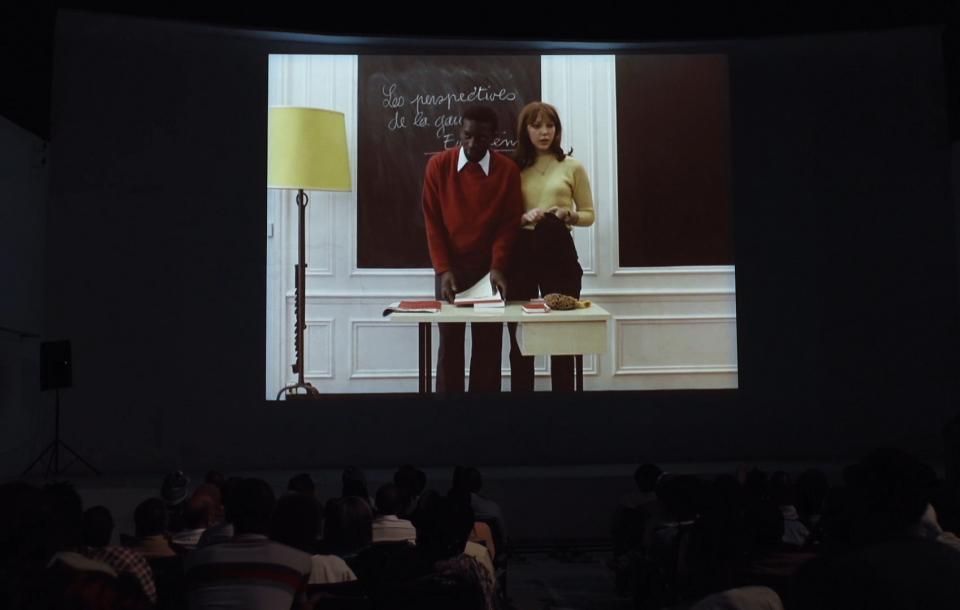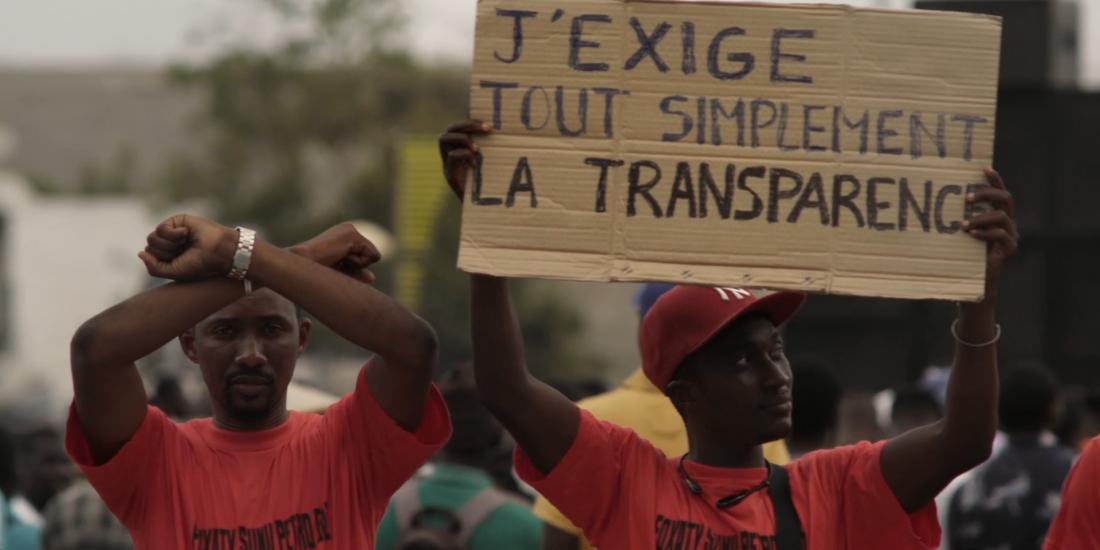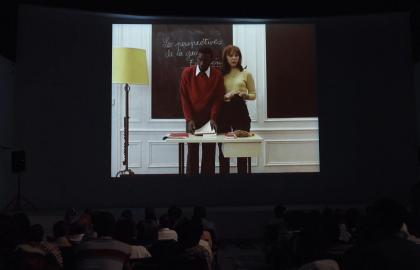
“Omar was someone who kept asking himself questions. Because he was someone who thought that to be true to yourself, you have to act.” These words, taken from Just a movement, aptly describe the mood of the film by Belgian visual artist and filmmaker Vincent Meessen, as he examines the life of Senegalese activist and intellectual Omar Blondin Diop, an iconic figure of the country’s post-May ’68 protest movement.
Who was Omar Blondin Diop?
Born in 1946, in Niamey, Niger, Omar Blondin Diop received a high-quality education at the prestigious Lycée Louis-le-Grand in Paris, and at the elite École normale supérieure in Saint-Cloud. He developed a strong political conscience and actively participated in left-wing opposition movements, which at the time were inspired by the Chinese cultural revolution. His involvement won him a role – he plays himself – in Jean-Luc Godard’s cult movie La Chinoise (1967), a story about a group of young students greatly influenced by Maoist thought. Diop took part in France’s May ’68 protests, and continued his revolutionary activities until, in 1969, he was expelled from France to Senegal. There, his fight continued, his ideals alternately influenced by situationism, Trotskyism and Maoism. The well-known collusion between the regime of Senegalese President Léopold Sédar-Senghor and that of De Gaulle’s and Pompidou’s France, obviously prompted fierce opposition among Senegal’s revolutionary Left, primarily in response to the great social repression in the country. Omar Blondin Diop was arrested, condemned and sent to the Gorée island prison near Dakar. In 1973, he was found dead in his cell. The official report, which declared it suicide, has always been contested by major Senegalese Democratic figures, and by Diop’s family, which has recently demanded that the circumstances of Omar’s death be re-examined.
Past and present
Godard and his famous film are a natural backdrop to Meessen’s Just a movement. The impressionistic portrayal of Omar Blondin Diop, however, is deftly constructed from numerous other elements: interviews with past witnesses, friends and family who provide invaluable information, as well as contemporaries trying to understand Diop as a figure no longer with us and yet ubiquitous, given his impact on the history of Senegal. The movie’s approach – part documentary, part essay film – relies on the past to get a better grasp of the present, as in the case of Senegalese rapper Fou malade, for whom Omar Blondin Diop is an iconic reference of the protest movement.
Through his personal way of imbuing meaning to images and symbols, Vincent Meessen has created an aesthetically brilliant film that examines the effects of colonialism on present-day reality, and raises questions that are essential to deconstruct the country’s official collective memory, ultimately still lacking a fresh perspective.
Vincent Meessen: visual artist and filmmaker
As well as representing Belgium at the 56th Venice Biennale in 2015, Vincent Meessen has also participated in the Sāo Paulo (2021), Chicago (2019), Lubumbashi (2019), Shanghai (2017) and Taipei (2016) biennials, as well as the Printemps de Septembre Festival in Toulouse (2018). His solo exhibits have been featured at the Power Plant in Toronto (2019), the Leonard & Bina Ellen Art Gallery at Concordia University, Montreal (2018), and at the Centre Pompidou, in Paris (2018). Meessen’s films have been shown in numerous festivals and museums worldwide. As a member of Jubilee, a platform for artistic research and production, he regularly speaks at many seminars and art schools in Belgium and abroad.

